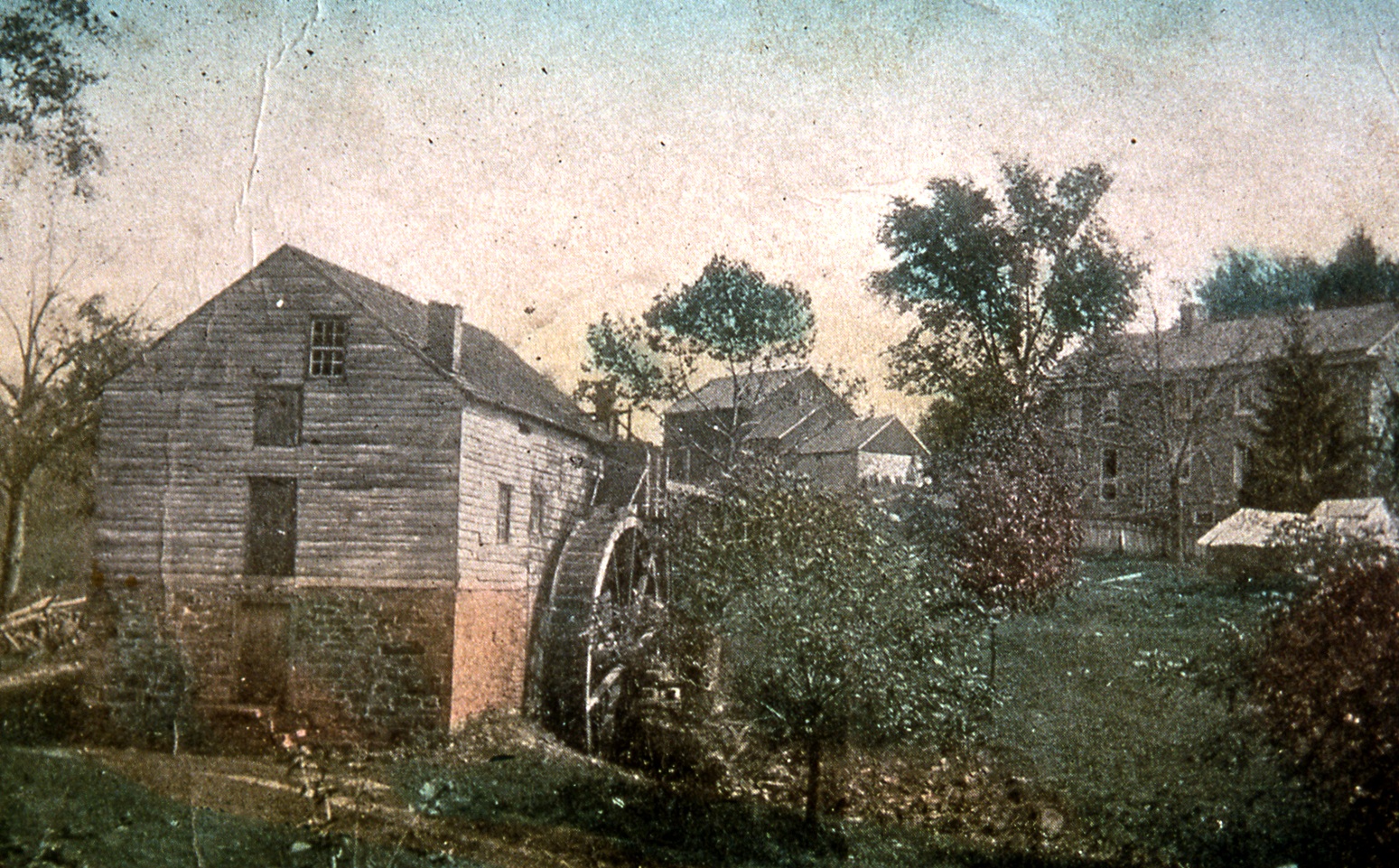by Jonathan M. Hoppock
published in the Democrat Advertiser, December 5, 1901
This interesting old property deserves a much longer treatment than Mr. Hoppock was able to give. He did return to this subject when he published “The Old Sergeant Mill” on July 20, 1905. However, that article was focused on the mill, rather than the house—the mill was located just north of the house, but has since been torn down. The most remarkable thing about the house is that it has been in the same family since Charles Sergeant and wife Sarah Green took possession in 1805, over 200 years.1

Among the early settled places in the Delaware valley is the one here shown. The original owner and builder was John Opdycke, a Hollander, who erected the Mansion in the year above named, as shown by the date thereon. The mill is thought to have been built some time previous.2
The property continued in the possession of the Opdyckes until the year 1795 when it was purchased by Charles Sergeant,3 and has since that date been owned by his immediate descendants, its present owner being Richard G. S. Johnson, a great grandson. During all these years this stout made old structure has been used for the purpose for which it was erected, and is still in use.
Charles Sergeant, born in 1760, was at the outbreak of the American Revolution, but a mere youth of fifteen, but inspired by patriotic impulses, responded to his country’s call. He was with the army of Washington during the entire struggle, suffering the hardships of the bare-footed march through his native State during the Winter of ’76; the starving and misery incident to the encampment at Valley Forge; participating in the numerous engagements, but living to see the close of the war at Yorktown in ’81, and returning to his home to become one of the most useful and upright citizens of his time. His death occurred in 1833 it the age of 73 years and 15 days.
Many incidents relative to this grand old war were remembered and told by the old hero on his return, the recital of which would fill too much space in this sketch. Notably among them were conversations held at different times with General Daniel Morgan. As it has been claimed by some historians that Morgan was not a native of New Jersey, the old warrior often stated that Morgan in these conversations would frequently refer to his birthplace in Hunterdon County, make inquiries in reference to it, and expressed a desire at some future time to be able to visit his Native State.4
The mansion on this noble old homestead has recently been remodeled by its present owner, but the old mill undoubtedly presents much the same appearance as it did in the long ago, when the old Revolutionary hero looked after the interests of his patrons.
Footnotes:
- For more about the Sergeant family, see Pine Hill Cemetery, What’s In A Name? Skunktown, Generations of Greens, Richard Green and Elizabeth Wolverton, and Charles Sergeant and Sarah Green. For more information on John Opdycke and Margaret Green (great aunt of Sarah Green Sergeant) see Opdycke’s Mill at Headquarters. ↩
- The mill might have been built by Edward Milner who owned the property in the 1740’s. The miller’s house, on the corner southeast of the covered bridge, dates back to about that time. ↩
- In 1795, the mill was owned and run by John Opdycke’s son Samuel, who died in 1801. The property was conveyed by Samuel’s son John to Charles Sergeant in 1805. ↩
- Hoppock was born in 1838, so he could not have heard the stories from Charles Sergeant; most likely he heard them from Sergeant’s son, Green Sergeant. ↩